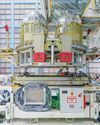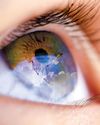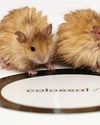CATEGORIES
Kategorier

How Trump's cuts are hurting his voters
CLARKSBURG, W.VA., HAS LEAD PIPES SCATTERED THROUGH- out the city, which has caused elevated levels of lead in some children’s blood, resulting in health issues like developmental delays.

What are abortion shield laws?
In the aftermath of the U.S. Supreme Court decision overturning Roe v. Wade in 2022, many states have moved to protect the right to abortion, and several have turned to a new tool to do so: abortion shield laws.

The next view into the cosmos
The giant, 40-ft. space telescope resting in the airtight, climate-controlled clean room at NASA’s Goddard Space Flight Center in Greenbelt, Md., wants nothing to do with the microscopic dust particles clinging to your clothing.

Michelle Trachtenberg
When Michelle Trachtenberg suddenly appeared among the already-familiar cast members of Joss Whedon’s much loved turn-of-the-21st-century TV show Buffy the Vampire Slayer, at the start of Season 5, no one knew what to make of her.

FOR Duty, FOR Love
At an age when many people would be retired, QUEEN CAMILLA is still focused on her royal responsibilities. Newsweek goes behind the scenes to examine her work and its impact

The World's Greatest Places
OUR ANNUAL LIST OF THE MOST INTERESTING DESTINATIONS AROUND THE GLOBE TAKES YOU FROM THE SOUTH PACIFIC TO NORTHERN GREENLAND-AND EVEN TO A NINTENDO MUSEUM IN BETWEEN. FIND THE REST OF OUR TOP 100 PLACES TO STAY AND TO VISIT AT TIME.COM/WORLDS GREATESTPLACES

HOLLYWOOD FOLLIES
Seth Rogen's showbiz satire sends up a studio head's desperation in the era of streaming, austerity, and IP

Diana Taurasi
The WNBA’s all-time leading scorer discusses her decision to retire from basketball, lessons from Russia, and what she’ll miss about the game

From Shadows to Sight
A revolutionary gene therapy has given blind children with a rare eye disorder the ability to see

War of Words
JD Vance took Europe by surprise when he deemed a \"retreat\" of free speech one of the biggest threats to the continent. Newsweek explores freedom of expression there and in the U.S.

Windward Roads Infrastructure: Paving Sint Maarten's Future with Innovation & Resilience
Building Resilience and Innovation in Caribbean Infrastructure

Industrial Hoses: Blood Vessels of Industry
KOMAN is helping craft the bodies of technology and machinery powering the industrial future with its hydraulic and industrial hoses.

SINT MAARTEN/SAINT-MARTIN: Bridging Regions for Growth and Prosperity
Nicknamed “The Friendly Island,” Sint Maarten and Saint-Martin are forging new pathways for growth by strengthening economic and tourism ties with the United States.

Sint Maarten: Where Maritime Innovation Meets Caribbean Charm
A Leader in Sustainability and Connectivity.

Flowone Leads in Bellows Seal Valves
Flowone is looking to international markets to continue its expansion, bringing advanced valves and precision engineering at remarkably competitive prices.

A Mammoth Breakthrough
A biotech team has created a “woolly mouse,” marking a step forward in the quest to revive the long-extinct species

5 ways to clean your house safely
While cleanliness is a virtue, germ fixation is not. Cleaning your house too thoroughly, or with the wrong kinds of products, can be harmful to health.

Gene Hackman
Everyman leading man

Not Just for the Taste of It
How Diet Coke, once a favorite of “It” girls, has become the new symbol of masculinity

Ultra-Precision Manufacturing for Tomorrow's Batteries
When it comes to batteries, HYTC have emerged as the first-choice battery manufacturing partner in everything from personal electronics to electric vehicles.

Functional Pigments: Beyond Aesthetics.
CQV are bringing a new generation of pearlescent pigments, effect pigments and functional pigments to enable sustainable design and next generation technologies. By Daniel de Bomford

Dylan Mulvaney
WHEN SOCIAL MEDIA INFLUENCER DYLAN MULVANEY, FAMOUS FOR CHRONIcling her gender transition online in \"365 Days of Girlhood,\" posted a sponsored video promoting Bud Light, it quickly went viral, but not necessarily in a good way.

Make Democrats Funny Again
The party has defined itself entirely in opposition to Donald Trump and forgotten that people vote for the person they'd rather grab a beer with

Spy spouses face a potential breach of trust
Familiarity breeds contempt, maybe especially in marriages. How do you keep a close partnership fresh? Perhaps married spies, like the ones in Steven Soderbergh's silky spy caper Black Bag, have the answer.

AMERICA'S GREATEST WORKPLACES FOR WOMEN
Progress toward gender equity in the workplace continues even as challenges remain.

Woolly mice are a first step in restoring the mammoth
Extinction is typically for good; when it comes to the woolly mammoth, however, that rule has now been bent.

SETTING THE PACE
Donald Trump paused long enough for a campaign stop on Capitol Hill

Putin's Next Battle
Russian soldiers returning from Ukraine could challenge the president by revealing the invasion's true cost

Return public lands to Indigenous people
Since the start of Donald Trump's second term, his Administration has fired thousands of federal workers across multiple public-lands agencies. The effects of this are vast: it's going to cause immeasurable harm to America's wildest places and devastate the economies built around them.

I'm a disabled woman.Is that my brand?
EVERY TIME I PICKED UP MY SON AT DAY CARE LAST YEAR, our reunion was punctuated by the same questions from the other 3-year-olds: “Why are you in that wheelchair? What happened?” I am used to questions. I’ve answered them all my life with little fanfare. But these interactions started to feel different with my son there to bear witness.